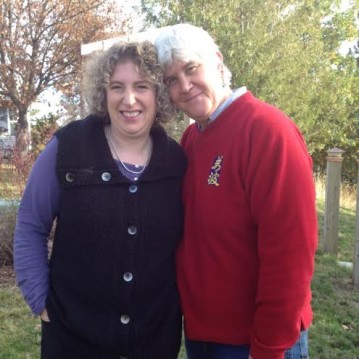[todaysdate]

A recent article in the Journal of Family Psychology is particularly relevant to interfaith couples. Researchers asked whether “Partner-focused petitionary prayer (PFPP)” is uniquely important in conveying relationship benefits and whether it has an effect on relationship satisfaction.
When I read the research, I thought about my own romantic relationships. I have been in several inter-faith relationships but my first romantic relationship and current committed relationship are not interfaith. I have changed. My belief systems and religious practices have changed significantly over the intervening years.
If you think about your past relationships, were any of them interfaith relationships? What about now? Does praying with or for your partner influence your happiness or satisfaction in your relationship?
My first romantic relationship was while I was a student at Brigham Young University. Fresh from a mission for the Mormon church in Tokyo, Japan, I started dating. As an active member of the LDS church I couldn’t even really imagine dating someone of a different faith. As I look back now, I was more okay with dating a woman than someone of another faith. Yet, that is what lead to my leaving the Mormon Church.
In the research, Frank D. Fincham and R. H. Steven studied 316 undergraduate students who were in an “exclusive” romantic relationship. They found that “partner-focused petitionary prayer was related to later level of commitment and that this relationship was partially mediated through enhanced relationship satisfaction.” In other words, couples who share a prayer practice were more committed because they were more satisfied.
A second part of the study examined partner-focused petitionary prayer in a sample of 205, married African American couples. It found, “that both partners’ Partner-focused petitionary prayer was consequential for commitment.” In other words in this 2014 article entitled, “I say a little prayer for you: Praying for partner increases commitment in romantic relationships” both people in the relationship needed to engage in the prayer practice.
I wonder if it is the shared prayer experience or whether praying for someone else can have an effect like visualization where you are visualizing, asking for and hoping for something good for another person. Is it the praying or the being able to think deeply about someone else’s needs that benefit the relationship?
As with many things that help us heal and improve our relationships, it is probably a combination of a shared way of looking at the world and an ability to express empathy and compassion and perhaps most importantly taking the time to think about another person.
In my case, after I left the Mormon church and my first relationship, I was in interfaith relationships, attended services and engaged in various types of spiritual practices until I started to study Judaism. My first interest in Judaism grew through a romantic relationship with a Jewish woman. Last summer I made official my 14 year relationship with Judaism, which I did only in small part because I am in a relationship with a rabbi.






